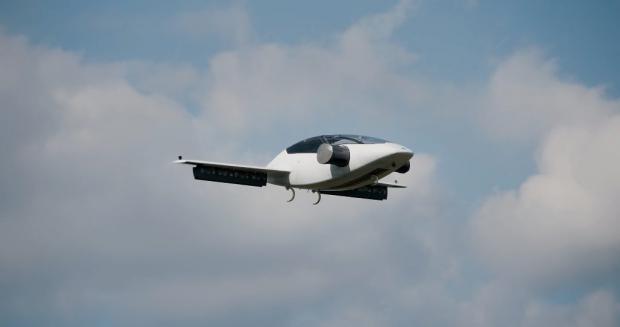
Breaking News
 Powerful Pro-life Ad Set to Air During Super Bowl 'Adoption is an Option' (Video)
Powerful Pro-life Ad Set to Air During Super Bowl 'Adoption is an Option' (Video)
 Even in Winter, the Sun Still Shines in These Citrus Recipes
Even in Winter, the Sun Still Shines in These Citrus Recipes
 Dates: The Ancient Fertility Remedy Modern Medicine Ignores Amid Record Low Birth Rates
Dates: The Ancient Fertility Remedy Modern Medicine Ignores Amid Record Low Birth Rates
 Amazon's $200 Billion Spending Shock Reveals Big Tech's Centralization Crisis
Amazon's $200 Billion Spending Shock Reveals Big Tech's Centralization Crisis
Top Tech News
 SpaceX Authorized to Increase High Speed Internet Download Speeds 5X Through 2026
SpaceX Authorized to Increase High Speed Internet Download Speeds 5X Through 2026
 Space AI is the Key to the Technological Singularity
Space AI is the Key to the Technological Singularity
 Velocitor X-1 eVTOL could be beating the traffic in just a year
Velocitor X-1 eVTOL could be beating the traffic in just a year
 Starlink smasher? China claims world's best high-powered microwave weapon
Starlink smasher? China claims world's best high-powered microwave weapon
 Wood scraps turn 'useless' desert sand into concrete
Wood scraps turn 'useless' desert sand into concrete
 Let's Do a Detailed Review of Zorin -- Is This Good for Ex-Windows Users?
Let's Do a Detailed Review of Zorin -- Is This Good for Ex-Windows Users?
 The World's First Sodium-Ion Battery EV Is A Winter Range Monster
The World's First Sodium-Ion Battery EV Is A Winter Range Monster
 China's CATL 5C Battery Breakthrough will Make Most Combustion Engine Vehicles OBSOLETE
China's CATL 5C Battery Breakthrough will Make Most Combustion Engine Vehicles OBSOLETE
 Study Shows Vaporizing E-Waste Makes it Easy to Recover Precious Metals at 13-Times Lower Costs
Study Shows Vaporizing E-Waste Makes it Easy to Recover Precious Metals at 13-Times Lower Costs
Lilium and ABB announce MegaWatt ultra-charging system for eVTOLs

That means they'll need to charge up in little more time than it takes to get passengers and luggage on and off.
This is going to require some extraordinary chargers – not to mention battery packs that can take the stress of ultra-fast charging. So German eVTOL company Lilium has teamed up with Swedish/Swiss multinational giant ABB on a monster charging system designed to blast-charge batteries and ensure quick turnaround.
True to its name, the MegaWatt system will push up to a full thousand kilowatts of power DC. Lilium says this will give its aircraft a full 0-100 percent charge in around 30 minutes, or a quick 0-80 percent charge in just 15 minutes. This, combined with the 7-seat air taxi's projected range of 155 miles (250 km) and cruise speed around 175 mph (282 km/h), will allow each aircraft to make between 20 and 25 flights per day.
The MegaWatt Charging System (MCS) is a new standard under development specifically targeted at large electric vehicles like trucks, buses, municipal and commercial vehicles. With a single hand-held cable and plug, it'll push maximum voltages up to 1,500 V, and maximum currents up to 3,000 A – so it theoretically supports charging at up to 4.5 megawatts. How exactly that works without causing the lights to go out in several nearby suburbs will be interesting to learn.
A significant number of major transport industry players are on board with this project, and as such, the system developed by Lilium and ABB will be compatible with a range of other heavy vehicles – not that we'd expect them to come cruising past a Lilium vertiport hoping for a top up.
ABB has considerable form in this arena; it's already rolling out the world's fastest commercially-available chargers for regular EVs: the 360-kilowatt Terra 360.

 Smart dust technology...
Smart dust technology...

